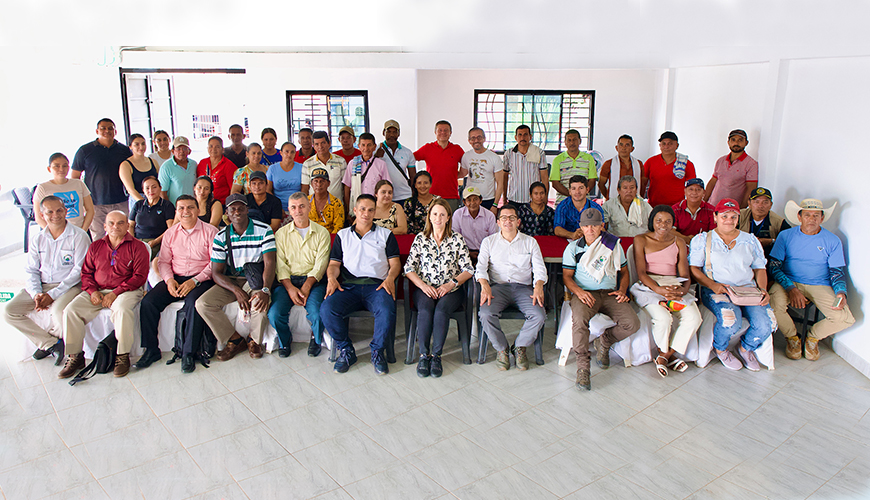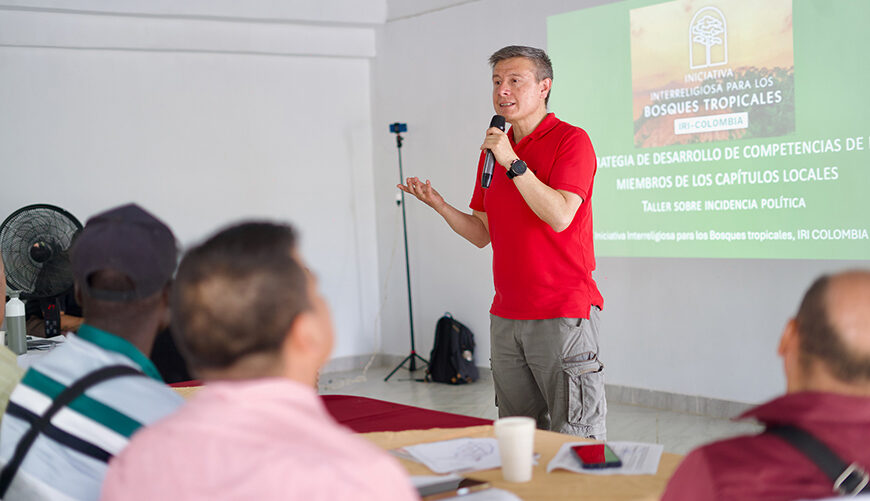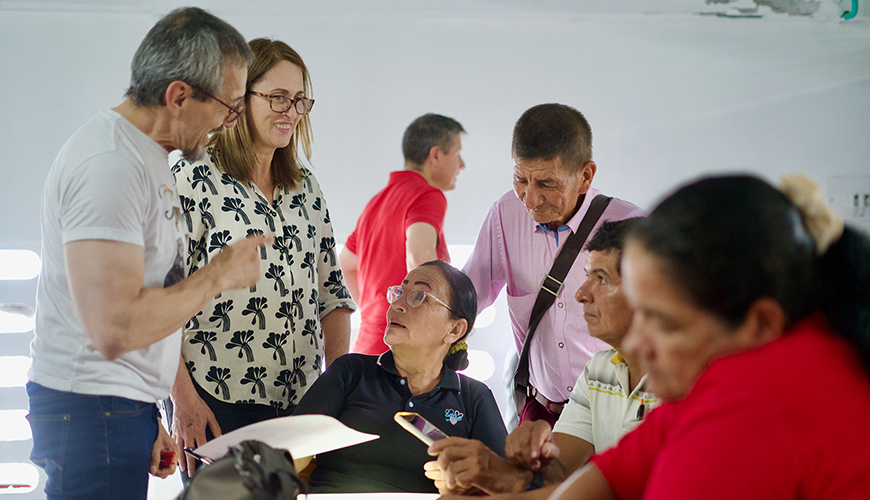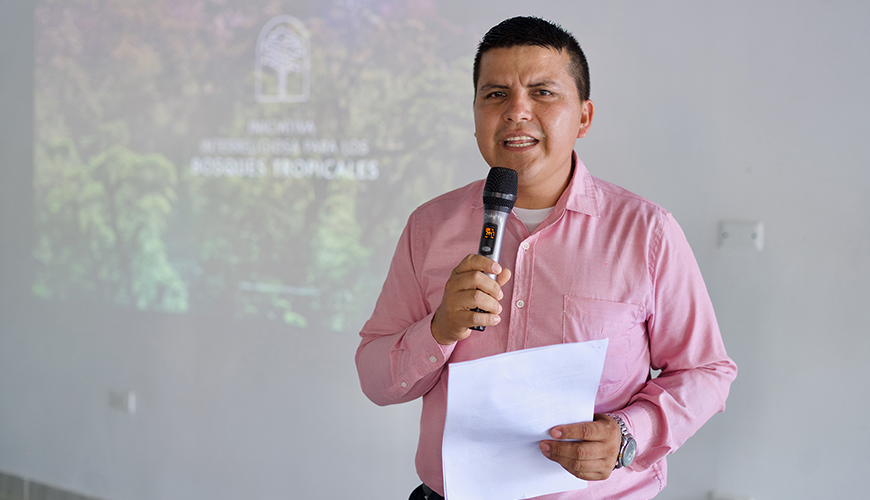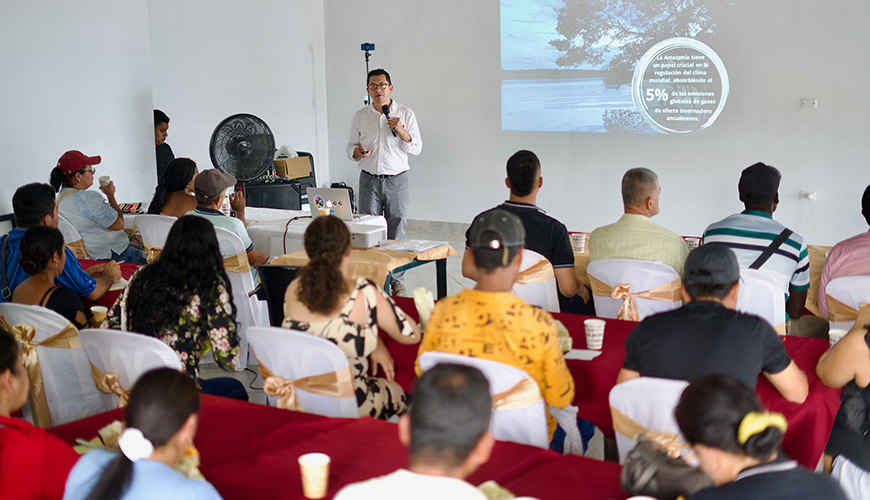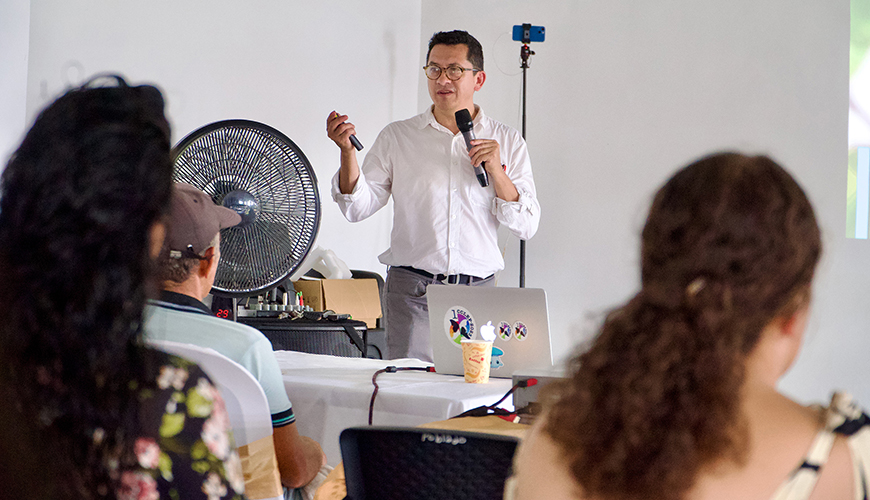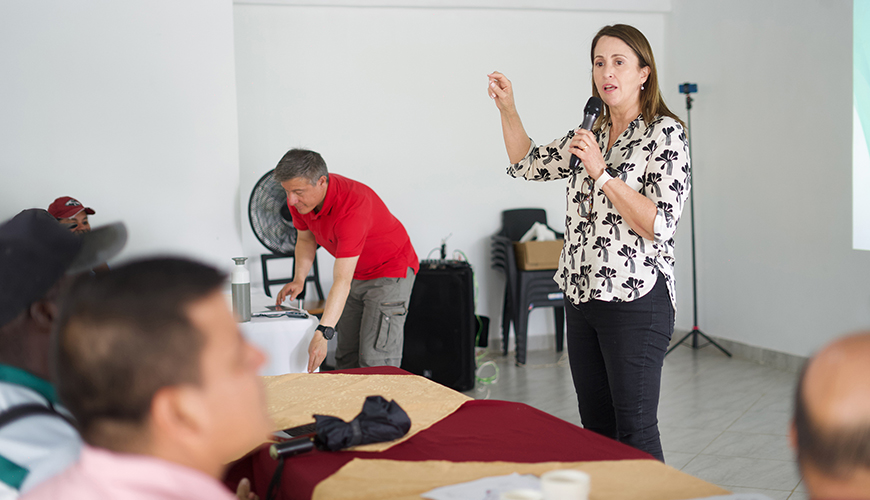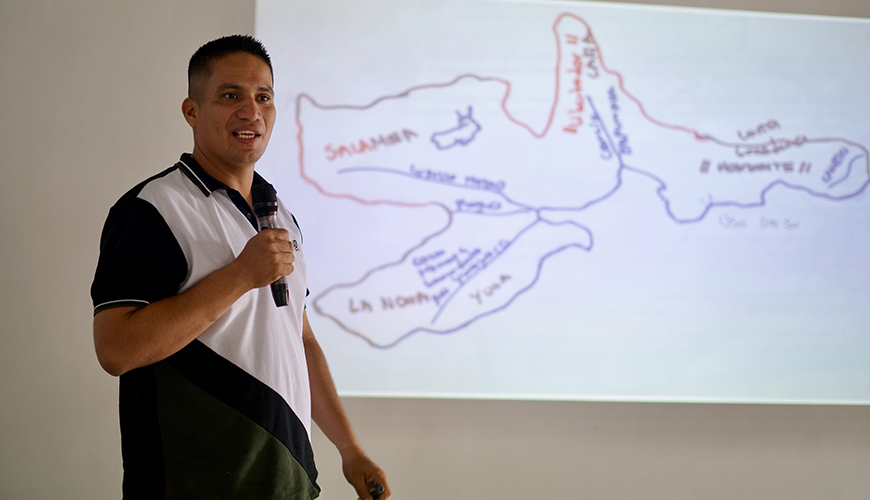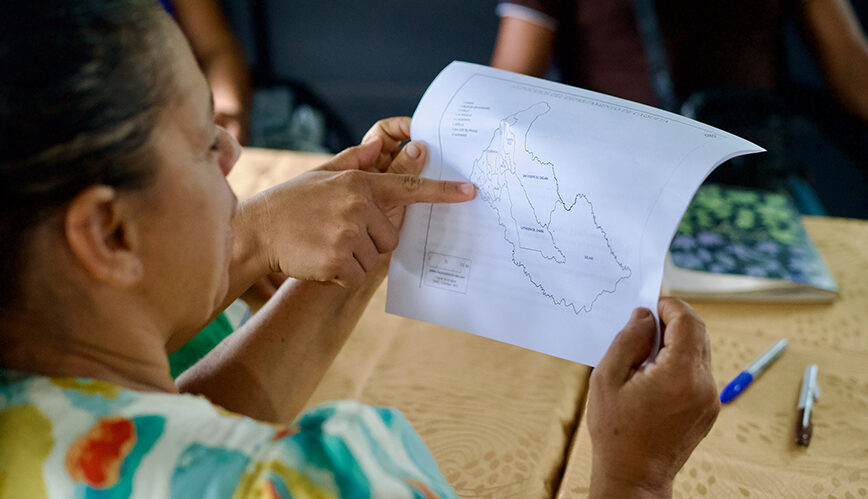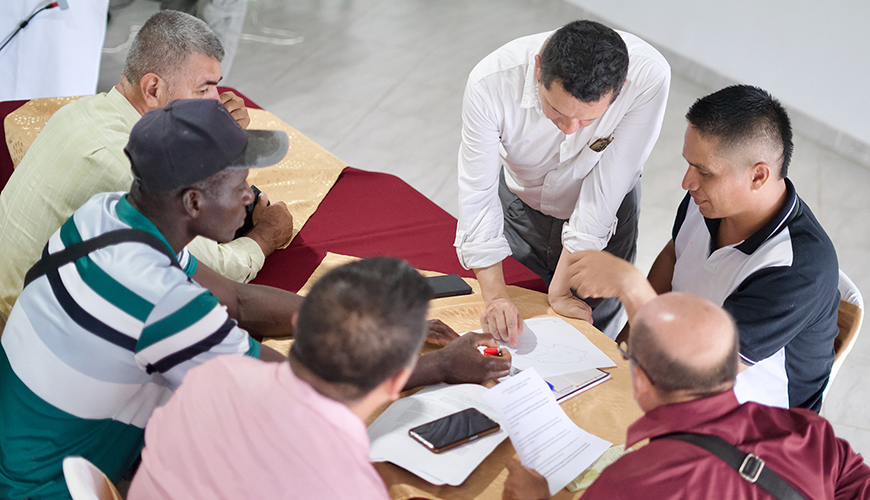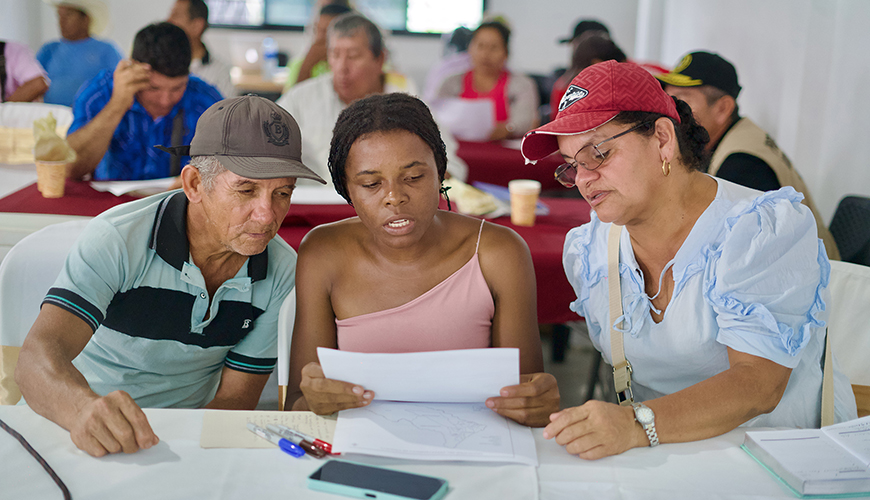The protection of Amazonian tropical forests and the care of water are the central axis of the second pedagogical cycle of 2025, of the Interreligious Initiative for Tropical Forests, which began with the process of forming the local chapters IRI-Curillo, IRI-Núcleo Horizonte and IRI-Mayoyoque.
With the purpose of participating in this day of training and capacity building for the defense of the Amazon, on September 23, more than 60 people gathered at the Mirador del Río (Curillo), including religious leaders, presidents of action boards, representatives of social organizations, indigenous authorities and members of the local government.
“This is a space designed so that together we can advance in the shared mission of protecting the Amazon and, with it, life itself,” said the national coordinator of IRI-Colombia, Blanca Lucía Echeverry.
During the pedagogical meeting, three speakers addressed the issue of caring for tropical forests and water from different perspectives: ethics and spirituality, physics and ecology, and political advocacy.
To begin, Pastor Eider Martínez Muñoz, coordinator of the three local chapters in Curillo, reflected on water and forests as sacred goods that sustain life, taking as a starting point the booklet “Environmental Bible Lessons”, a pedagogical document prepared by IRI-Colombia with the aim of addressing the care of the Amazon from pastoral action. “We are anchored in the present all the time, but we must also think about the future, about the new generations, about our children. If we continue to administer creation as we have been doing, in twenty years we will not have rivers,” said the religious leader of the World Missionary Movement church.
For his part, the biologist and Ph.D. in Ecology and Sustainable Development, Diego Fernando Campos, addressed the relationship between tropical forests and the water cycle and the physical and ecological qualities of the Amazon forest that make flying rivers possible. “They produce rainfall of thousands of kilometers and are vital for agricultural production and the lives of millions of people,” said the expert.

